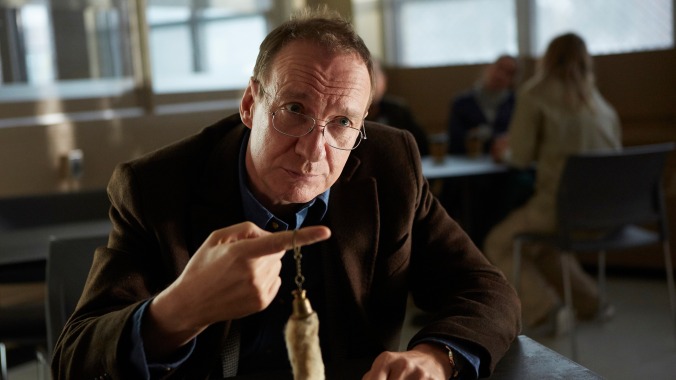Guest Of Honour has the style of classic Atom Egoyan, but none of the inspiration

It’s been very strange watching Atom Egoyan—one of world cinema’s finest directors back in the ’80s and ’90s—stumble through the second half of his career, seemingly unable either to find a worthwhile new path or to retrace his steps. Adapting a novel by the guy who wrote “Escape (The Pina Colada Song)”; remaking a lightly steamy French drama as a full-bore erotic thriller; hopping aboard the West Memphis Three bandwagon—none of his pace-changing efforts has borne much fruit (although 2015’s Remember, featuring Christopher Plummer as a geriatric Nazi hunter, was at least arrestingly ludicrous). Every so often, Egoyan takes another stab at the offbeat, achronological, weirdly intimate mode in which he originally specialized, but the spark never quite fully ignites. Guest Of Honour, his latest effort, is decidedly that sort of low-wattage Egoyan classic, serving up familiar preoccupations and structural curlicues—minus any inspiration.
Fans will know that this usually involves a great deal of shifting among multiple timelines. Guest Of Honour begins immediately following the death of its protagonist, Jim Davis (David Thewlis)—not the Garfield cartoonist, but a particularly persnickety health inspector who’s perhaps a little too devoted to his profession. In the film’s present-tense storyline, Jim’s adult daughter, Veronica (Laysla De Oliveira), talks to the priest (Luke Wilson) who’ll be performing her father’s funeral service, and desires a better sense of who the man was. Her description prompts flashbacks to Jim’s recent past, during which time Veronica was in prison and he routinely sublimated feelings of helplessness into tyrannically stringent restaurant inspections. Another set of flashbacks gradually reveal the reason why Veronica ended up behind bars, largely by her own design. And that tale requires additional flashbacks to Veronica’s childhood, revealing a long-ago transgression—or perceived transgression, at any rate—that set all the wheels in motion.
Egoyan remains uncommonly skilled at narrative navigation, and still knows just how long to delay revealing crucial details for maximum impact. What’s gone rusty is his penchant for taking a mundane emotional dynamic and rendering it mesmerizingly strange. Guest Of Honour is strongest when it’s heavily focused on Jim’s professional life, watching him wield his petty power over restaurant owners like an adult incarnation of an obnoxiously dedicated high school hall monitor. The movie briefly finds a pulse when he plants “rat droppings” (actually the droppings of Veronica’s pet rabbit, slightly modified) in a men’s room, as a means of blackmailing the proprietor into something that’s related to his daughter’s incarceration. But the entire convoluted melodrama involving Veronica fizzles, in part because it requires her to behave in ways that are hard to swallow even once it’s made clear that she’s self-destructive. Even if unconsciously driven by festering childhood guilt, most teachers aren’t going to fake sex with a student in order to prank a rejected suitor who already suspects them of statutory rape.
To her credit, De Oliveira understands, as Egoyan regulars like Bruce Greenwood and Elias Koteas once did, that naturalistic acting doesn’t serve this filmmaker’s sensibility. She makes Veronica unnervingly intense, especially around her father, and nearly manages to sell the screenplay’s least credible aspects. Thewlis, by contrast, fashions a straightforward portrait of a grasping martinet—psychologically acute, but too ordinary to achieve the stilted gravitas that makes Egoyan’s best work special. (The scene that gives the film its title, in which Jim attends a rule-skirting private function and gives an impromptu speech, falls completely flat.) Even a masterpiece like Exotica would feel small and shabby were it as plainly inflected as this, with characters’ buried motivations helpfully unearthed by a sounding board of a kindly priest. It’s never too late to hope for a belated return to form, but there’s frustratingly little evidence of that here.